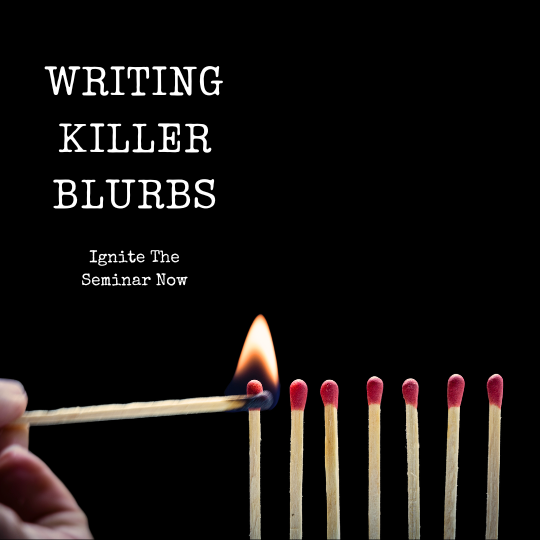Paul Whybrow
Full Member
Call them what you will—blurb, endorsements, hyperbole or book promotion—words of praise on the cover by other authors, critics, celebrities and publishers are all meant to entice a reader into choosing this book rather than that book.
They've been around for a while, with Walt Whitman said to be the first author to use words of praise from another writer on the cover of his book. In 1855, Ralph Waldo Emerson sent Whitman a letter of congratulation on the publication of Leaves of Grass, which included the words: "I greet you at the beginning of a great career." When the second edition was published in 1856, Whitman had these words stamped in gold leaf on the spine.
I've previously commented on the dishonesty of book blurbs, but they're an inherent part of publishing. Some authors appear to be unable to control their toadyish flattery, appearing on scores of covers—so much so, that it's a wonder they find time to write their own books.
At least book endorsements are more honest than those used to promote movies, which are notoriously unreliable—usually taking a few words at random from a review to print on the poster, that look like praise, even if the critic quoted ultimately hated the film.
As unknown writers, it would be hard for us to find a well-known author to make a statement of approval. That task would be down to our literary agent or publisher, who'd approach one of their clients, asking them to say something nice. It's a tricky area, as this article in the Guardian shows:
Take it from me: never judge a book by the blurb on its cover | Emma Brockes (It's well worth looking at the comments at the bottom of the article)
Should your book get published and be favourably reviewed, leading to respectable sales, then you'll start to receive entreaties from debut authors, with manuscripts dropping through your letterbox.
I tend to be unimpressed by the hyperbole that appears on book jackets, though if one of my favourite authors praised a debut novelist, I might pay more attention. For example, if James Lee Burke gave a nod of approval to a new crime writer, I'd read their book. I choose most of my fictional reading matter from book reviews or seeing a title referred to in an interview with a writer. Friends have recommended books to me, which is how I discovered Stoner by John Williams, and the writing of Kent Haruf. Returning the favour, I love introducing friends to new books, music, art and films. I've given several copies of Annie Dillard's The Maytrees as birthday presents, which is one of the most unusual and touching tales of a loving relationship I've ever read.
Sometimes, an endorsement can be off-putting. At the moment, I'm really enjoying Ben H. Winters' Underground Airlines, but of two bits of blurb on the cover, one is by James Patterson, who I've lost all respect for, since he turned himself into a writing factory using hired guns.
All of this inevitably leads me to wondering what approving quotes could possibly appear on the cover of my first Cornish Detective novel, should it ever be published. I have a feeling that comparisons would be used, such as "A worthy successor to W. J. Burley's Inspector Wycliffe," for even though Burley died 16 years ago, his work lives on in five television series that are constantly repeated.
Such an approach would make sense, in a way, for we understand what something is by making comparisons with stuff we already know.
What blurb would you like to see printed on the book jacket of your first published book?
Who would you be honoured to see patting you on the back—some master of your chosen genre?
(I've just had a horrible thought . What if someone whose books I disliked, heaped praise on mine?!)
. What if someone whose books I disliked, heaped praise on mine?!)

They've been around for a while, with Walt Whitman said to be the first author to use words of praise from another writer on the cover of his book. In 1855, Ralph Waldo Emerson sent Whitman a letter of congratulation on the publication of Leaves of Grass, which included the words: "I greet you at the beginning of a great career." When the second edition was published in 1856, Whitman had these words stamped in gold leaf on the spine.
I've previously commented on the dishonesty of book blurbs, but they're an inherent part of publishing. Some authors appear to be unable to control their toadyish flattery, appearing on scores of covers—so much so, that it's a wonder they find time to write their own books.
At least book endorsements are more honest than those used to promote movies, which are notoriously unreliable—usually taking a few words at random from a review to print on the poster, that look like praise, even if the critic quoted ultimately hated the film.
As unknown writers, it would be hard for us to find a well-known author to make a statement of approval. That task would be down to our literary agent or publisher, who'd approach one of their clients, asking them to say something nice. It's a tricky area, as this article in the Guardian shows:
Take it from me: never judge a book by the blurb on its cover | Emma Brockes (It's well worth looking at the comments at the bottom of the article)
Should your book get published and be favourably reviewed, leading to respectable sales, then you'll start to receive entreaties from debut authors, with manuscripts dropping through your letterbox.
I tend to be unimpressed by the hyperbole that appears on book jackets, though if one of my favourite authors praised a debut novelist, I might pay more attention. For example, if James Lee Burke gave a nod of approval to a new crime writer, I'd read their book. I choose most of my fictional reading matter from book reviews or seeing a title referred to in an interview with a writer. Friends have recommended books to me, which is how I discovered Stoner by John Williams, and the writing of Kent Haruf. Returning the favour, I love introducing friends to new books, music, art and films. I've given several copies of Annie Dillard's The Maytrees as birthday presents, which is one of the most unusual and touching tales of a loving relationship I've ever read.
Sometimes, an endorsement can be off-putting. At the moment, I'm really enjoying Ben H. Winters' Underground Airlines, but of two bits of blurb on the cover, one is by James Patterson, who I've lost all respect for, since he turned himself into a writing factory using hired guns.
All of this inevitably leads me to wondering what approving quotes could possibly appear on the cover of my first Cornish Detective novel, should it ever be published. I have a feeling that comparisons would be used, such as "A worthy successor to W. J. Burley's Inspector Wycliffe," for even though Burley died 16 years ago, his work lives on in five television series that are constantly repeated.
Such an approach would make sense, in a way, for we understand what something is by making comparisons with stuff we already know.
What blurb would you like to see printed on the book jacket of your first published book?
Who would you be honoured to see patting you on the back—some master of your chosen genre?
(I've just had a horrible thought





